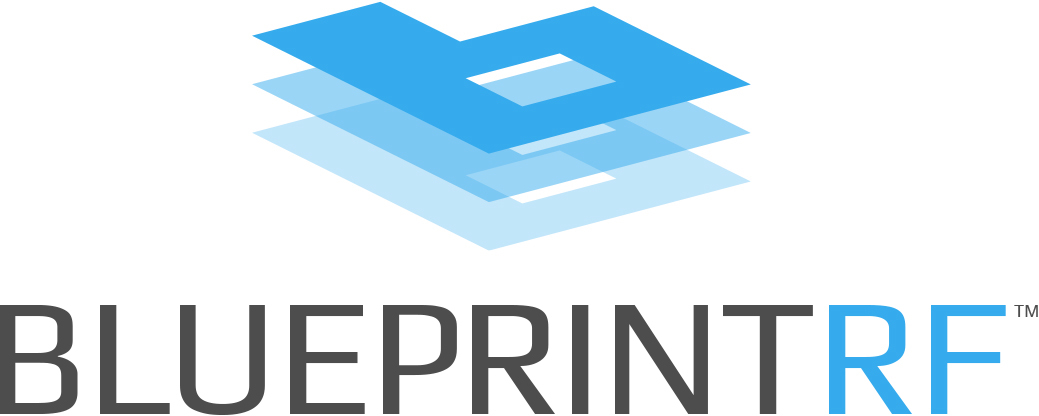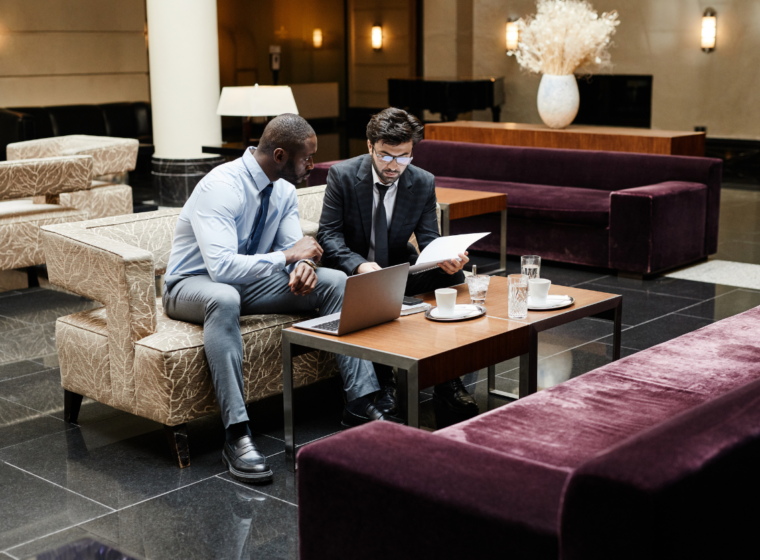Hospitality businesses are subject to a wide range of changing business practices. Facing new consumer demands, growing competition, and stringent regulatory requirements, hospitality professionals must adapt.
This blog post will explore post-pandemic trends that have the potential to transform your workplace. We’ll touch on everything from disruptive technologies like artificial intelligence and machine learning, to prevalent anti-patterns such as remote working and shifting work schedules to better align with organizational needs.
Common Trends Within the Hospitality Workplace Coming Out of the Pandemic
COVID-19 rocked the hospitality industry. In the wake of so much change, adaptation, and growth, it’s no wonder that the industry as a whole is still feeling its effects.
Even though many hospitality professionals are still recovering and rebuilding, a few common trends are emerging from the pandemic that will continue to influence the future of the hospitality workplace. Here’s what you need to know about the hospitality industry’s future in the coming years.
1. Sanitation and Cleanliness As New Differentiators
After the pandemic, the hospitality and food industry placed a major emphasis on sanitization protocols. Upon observation of staff following sanitization protocols, guests will feel safer at your property. Sanitization may even entice visitors to come back and recommend the property to their peers.
From the quality of the products used to the cleanliness of the work environment, environmental factors play a significant role in the success of a food or hospitality establishment. With an increasing focus on maintaining a clean workspace and establishment, sanitization protocols are new differentiators in the hospitality space.
Sanitization can prevent the growth of harmful bacteria, preventing food-borne illnesses and infectious diseases like COVID-19. Prevention of the spread of pathogens helps protect employees and guests from health risks. Taking steps to ensure that your sanitization efforts are up-to-par with guest expectations can help increase overall guest satisfaction.
2. Integration of Secure Technology
Digital disruption has taken over our world and leaked into all businesses. From the concept of “continuous service” to the Internet of Things, digital disruption is evident everywhere. While some hotels have responded by implementing digital disruption strategies, many still don’t even understand the concept. Businesses need to adapt to this new reality as a means to survive and thrive.
Artificial intelligence has the potential to completely change the hospitality industry. The technology is applicable for managing operations, customer service, and even revenue generation. When used with skill, AI can help reduce costs while increasing efficiency.
The rise of connectivity and data security is another trend that isn’t going away. As devices become internet-connected, hotels need to emphasize their connectivity offerings and cybersecurity practices.
The more devices connect to the Internet, the greater the chances of a breach. Even a small data breach can cause serious damage to your business. One way to combat this threat is to encrypt all data transferred between devices and the hotel’s network.
3. Airbnb Bookings and Vacation Homes
The hospitality industry thrives on the notion of treating guests like royalty and making them feel welcome. More than ever, hospitality businesses need to compete with luxury bookings in the digital world.
Today, people can rent a vacation home or book a staycation through services like Airbnb. For hoteliers, it’s essential to understand how the hospitality industry is competing with these other travel options, and offer similar booking services to keep up.
An Increased Focus on Wellness in the Workplace
The repercussions of the pandemic have taken a toll on many. Although the mental health side effects of patients who contracted the virus are still unknown, about 8 out of 10 former COVID-19 patients complain of depression and anxiety.
Hence, workplaces have adapted with a greater focus on employee wellbeing. Some of these focuses include:
Mental Health and Wellness
A Wellable report for employee wellness indicates that employers are investing:
- 88% more in mental health
- 87% incline in telemedicine
- 81% in resilience and stress management
- 69% investment than before in meditation and mindfulness
- 63% investment in wellness and intake passports
This increased investment in wellness options is essential for sustainable business and happy employees in the future. Comprehensive mental health and wellness programs may have the following features:
- 24/7 confidential helpline
- A holistic approach that integrates with a work ethos
- Access to telehealth
- Education and material provided to employees
- Personalized wellness programs
- Space in the office for a break, nap, and recreation
- Stress and anxiety management programs/coach
- Regular health checkups and immunization
For any workplace to thrive, an employee’s happiness is the key. If an employee has stress and anxiety due to the pandemic, they may not be able to function well. Thus, having wellness protocols in place and well-being checks is crucial for any business or industry.
Greater Employee Flexibility in Role (i.e., separation of skills and roles)
One quality of a great manager is the ability to identify an employee’s potential and assign them tasks according to their capabilities. Employees are happiest when challenged to excel in their field.
Any workplace project encompasses various segments. When a manager assembles a project team, team members’ skills shouldn’t overlap. However, for an employee to thrive on a team, they must be able to step out of their comfort zone.
Employers shouldn’t require any employee to take on the responsibilities of others. But, as a manager, providing an air of equality and cooperation where everyone feels safe to demonstrate their full skillset will serve as a boon for your team.
A More Malleable Work Lifestyle (i.e., remote work)
Pre-pandemic, hardly any companies practiced work from home, now known as WFH. Now, WFH has become a staple of business. Even Fortune 100 companies take a day a week to work remotely.
Here are some ways remote work offers more flexibility for workers and employers alike:
Increased Productivity
During the pandemic, companies noticed employees would finish work faster than they did when on the job site. Staff would log in at flexible hours, get the job done, and even do it with greater attention to detail. This flexible work model worked so well for companies that they reduced the size of the offices and created more remote jobs.
No Distractions
No workplace can exist in complete silence. Offices are full of commotion, movement, discussion, ringing phones, and more. Noise can distract employees from handling work requiring equal and undivided attention.
When employees work from home, the peace of a home office can prove beneficial to productivity.
Offices also have social dynamics, with constant office politics often getting in the way of productivity. At home, workers can focus on the main goal — work.
Coworking Spaces
Coworking spaces have also skyrocketed in popularity. Modern coworking spaces have evolved to accommodate all aspects of remote work. Many come equipped with comfortable seats, standing desks, phone booths, conference spaces, a café for breaks, and soundproof spaces for meetings.
One can even find coworking spaces with sleeping booths and wellness spaces. Since everyone in coworking spaces has the same aim, all coworkers maintain the decorum of the space. The space itself allows productivity to thrive while maintaining a tranquil atmosphere for those who utilize it, providing a positive alternative to the traditional office environment.
How Managers Can Provide the Best Environments for Workers as the World Pushes Forward
Managers are the game-changers of any work environment. Therefore, for hospitality businesses to advance, managers need to educate themselves on post-pandemic work life. Once equipped with information and knowledge, managers can implement changes for an ideal work environment.
Work-Life Balance
One aspect of remote work is that it empowers a healthy work-life balance. Employees can manage flexible schedules to achieve their daily goals with capacity and ease.
This flexibility allows employees to manage their tasks at the peak of their productivity. Meanwhile, in an office setting, employees often drag themselves to continue working through certain hours of the day, even if they aren’t able to fully focus on the tasks at hand.
When working from home, employees can take breaks, talk to housemates, spend a couple of minutes with pets to destress and return to their desks feeling rejuvenated.
In a survey by Flexjobs:
- 95% of respondents said they would be much happier if they had flexible work hours.
- 86% indicated flexible hours would help reduce stress.
- 67% believe it would enable them to focus on their physical health
- 94% (married) employees believe flexible hours will benefit them in maintaining a healthy balance with their children or spouse
Condensed Work Week Format
Condensed work weeks are an ideal format for extremely efficient employees. Work meetings, discussions after meetings, and planning for tasks can waste time for those more suited for independent, focused tasks.
For these employees, a shorter, efficient workweek may be a better use of their time. This schedule enables them to have an extra day off for rehabilitation and recreational activities. When they return to the office for work, these employees are well-rested, recharged, and ready to take on the next task with high energy.
Saving Employees Work-Related Expenses
Zoom meetings have become notorious for their casual attire. Employees working from home have reevaluated the need for spending valuable income on office dress codes. At home, in a remote setting, employees can put on the most comfortable tee or workout clothes and begin working.
By sticking to casual clothes at home, workers save money on expensive office wear. In remote or condensed work week settings, employees also save money on commutes, occasion lunches or eat-outs, and even pitching in for birthday celebrations.
Combining the amount spent on meals, coffee, commuting, and clothes each month, multiplied over a year, employees can save substantial amounts of income when working from home.
Leverage Cutting-Edge Trends in Your Workplace
To succeed in their business, managers have to keep their employees happy. With ever-changing shifts in workplace technologies, employee wants, and professional scenarios, especially in the wake of the pandemic, managers need to stay in the loop with new trends now more than ever. Using the strategies and technologies outlined above, managers can keep their hospitality business up-to-date and their employees happy in the modern working era.
With remote work, increased online wellness, and new technology comes additional challenges of workplace connectivity. Blueprint RH can help integrate remote and on-site work and wellness, building WiFi solutions specifically for your business. Contact us today to learn more.









